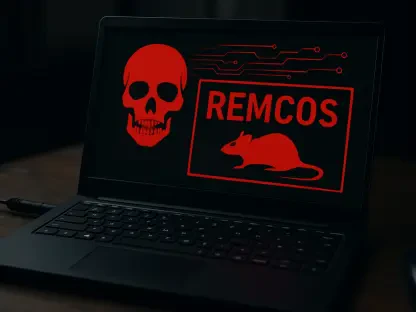In a significant ruling that underscores the severe consequences of organized retail fraud and identity theft, two New York men, Kavon Kerrick Robinson and Christopher Anthony Hilaire, were sentenced for their involvement in a dark web identity theft and retail fraud conspiracy. Their crimes, which unfolded over several months, highlight the ever-present threat posed by cybercriminals. This case sheds light on the complexities of prosecuting such offenses and the extensive impact they have on both retailers and consumers.
Court Sentences and Financial Repercussions
Sentencing Details and Financial Restitution
The court handed down a substantial prison sentence for each of the defendants, with Robinson sentenced to 42 months and Hilaire receiving a 16-month sentence. Additionally, both men were ordered to pay restitution amounting to $32,736.74, a figure that reflects a fraction of the harm caused by their fraudulent activities. This case is a stark reminder of the growing reach of cybercrime and its substantial financial toll on victims. The sentences came after Robinson and Hilaire pled guilty to conspiracy to commit wire fraud and aggravated identity theft, charges that carry heavy penalties due to the widespread damage such crimes inflict on the financial ecosystem.
Robinson and Hilaire’s scheme involved purchasing stolen credit card information from the dark web using cryptocurrency, a method that allowed them to anonymously acquire vast amounts of sensitive financial data. Between April and November 2022, while residing in Raleigh, they used this information to make illicit online purchases from major retailers, including Lowe’s Home Improvement and Walmart. Their activities were not confined to North Carolina, as Robinson frequently traveled to New York to resell stolen goods or secure cash refunds for the purchased items. The extensive and organized nature of their operations pointed to a sophisticated understanding of retail systems and vulnerabilities, which they exploited for their gain.
Role of Each Defendant in the Scheme
While Robinson focused on purchasing items like Google Nest thermostats, which he could easily resell, Hilaire played a crucial role in both assisting Robinson and educating others about similar fraudulent tactics. Hilaire’s involvement in mentoring other potential fraudsters indicates a disturbing trend where experienced criminals pass on their knowledge, perpetuating a cycle of crime. Their actions extended beyond individual gain, contributing to broader societal issues linked with organized retail fraud. These schemes often intersect with other criminal activities such as opioid addiction, identity theft, and even human trafficking, compounding their detrimental effects on communities.
U.S. Attorney Michael F. Easley, Jr. emphasized that retail return fraud not only burdens retailers but also results in higher prices for consumers, who indirectly bear the cost of such criminal activities. Retail fraud schemes erode the trust between consumers and retailers and inflate the costs of goods due to the increased need for enhanced security measures. This, in turn, places significant pressure on businesses, especially smaller ones, to absorb the financial losses, which can be devastating over time. Andy Ellen of the North Carolina Retail Merchants Association drew attention to the far-reaching implications of these crimes, highlighting their connection to various other serious offenses.
Investigative and Prosecutorial Efforts
FBI’s Role in the Investigation
The investigation into Robinson and Hilaire’s activities was spearheaded by the Federal Bureau of Investigation (FBI), showcasing the critical role of federal agencies in combating cybercrime. The FBI’s involvement underscores the importance of a collaborative approach in addressing complex criminal activities that often span multiple jurisdictions and involve sophisticated methods to evade detection. The multi-layered investigation required substantial resources and coordination among various law enforcement entities to unravel the intricacies of the conspiracy and gather enough evidence for a successful prosecution.
Assistant U.S. Attorney Brad DeVoe played a pivotal role in prosecuting the case, working diligently to ensure that justice was served. The effectiveness of the prosecution was evident in the substantial sentences handed down by U.S. District Judge James C. Dever III, which serve as a deterrent to other would-be offenders. The cooperation between different facets of the justice system, including investigative agencies and legal prosecutors, was instrumental in bringing the perpetrators to account and highlighting the seriousness with which such crimes are treated.
The Broader Implications of Organized Retail Fraud
In a landmark ruling highlighting the serious repercussions of organized retail fraud and identity theft, two New York men, Kavon Kerrick Robinson and Christopher Anthony Hilaire, were sentenced for their roles in a dark web identity theft and retail fraud conspiracy. The crimes committed by Robinson and Hilaire unfolded over several months and brought to attention the persistent threats posed by cybercriminals. This case not only underscores the complexities involved in prosecuting such offenses but also illustrates their far-reaching impact on retailers and consumers alike. Their illicit activities involved acquiring stolen personal information through the dark web, which they then used to commit significant retail fraud. As cybercrime continues to evolve, it poses increasing dangers to both businesses and individuals, emphasizing the need for robust cybersecurity measures and vigilant law enforcement. This case serves as a poignant reminder of the dedication required to combat such sophisticated criminal networks and safeguard both economic interests and personal identities.









